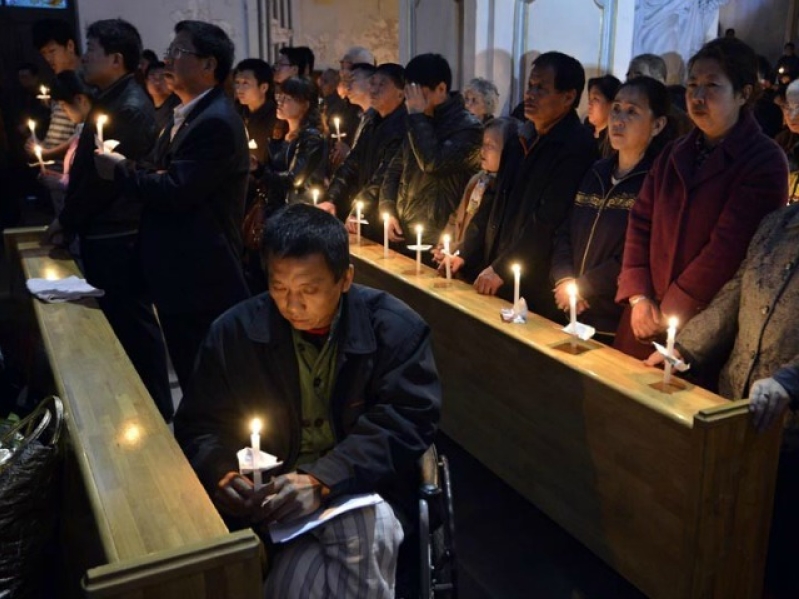
Authorities in China's southern Guangdong province have upped persecution against an unregistered house church, pressuring their landlord to evict the congregation -- leaving them without a place to worship.
According to a new report from persecution watchdog China Aid, officials have been harassing Guangfu Church for years because it refused to join the state-sanctioned Three-Self Church. Since 2015, police have coerced the church's successive landlords to terminate their contracts with the congregation.
Unfortunately, their efforts finally worked.
Earlier this month, the pastor of the church, Ma Ke, received a notice declaring that the contract had been terminated and ordering him to move out. When the pastor contacted the landlord, asking about the unexpected eviction, the landlord admitted police visited him several times, pressuring him to oust the congregation.
This is not the first time the church's landlord succumbed to government harassment and ended his contract with the church, as a similar incident occurred in 2016. In 2015, Ma was also forced from his personal residence after his landlord said that he would rather pay the liquidated fees rather than face continued police pressure, reports China Aid.
Even worse - when Ma tried to renew his Guangzhou residential permit online, he was denied and later learned that the authorities published a wanted notice for him. Other members of the church were also barred from renewing their permits, without which they cannot get driver's licenses or purchase new cars.
As reported, in China, churches must be legally registered with their local governments; thus, underground or unregistered churches are technically illegal in the country, and are thus often subject to raids and other forms of intimidation by local authorities. In some areas, local governments have shut down unregistered churches, citing such regulations.
In recent months, dozens of churches have been raided by authorities as China's government, under president Xi Jinping, becomes increasingly suspicious of the Christian faith . Earlier in May, dozens of Christians -- including children -- were detained by police officers who raided a house church meeting in the southern Guangdong province. A short time earlier, about 40 house church pastors gathered for a "Unity in Christianity" event were locked in a room and questioned by authorities, who broke into the building and accused the pastors of "participating in illegal gatherings without government permission".
In previous years, authorities bulldozed hundreds of churches and removed thousands of crosses in addition to imprisoning -- and even torturing -- pastors and human rights lawyers.
Because of these ongoing abuses, the church is ranked 39th on Open Door USA's World Watch List of countries where Christians face the most persecution.
Nevertheless,the country is said to be on track to having the largest Christian population in the world by 2030, according to Rodney Pennington who studies church growth for Overseas Missionary Fellowship (OMF).
"We are overjoyed with what the Lord has already done in China," said Pennington in a July interview with The Christian Post. "But that doesn't mean the task is finished."
"While 200 million Chinese believers by the year 2030 may seem ambitious, it certainly gives us a strong goal to pray toward," he added.







